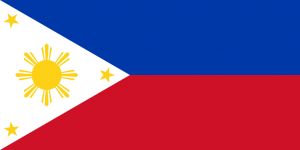Language/Cebuano/Vocabulary/Days-of-the-Week
| ◀️ Food and Dining — Previous Lesson | Next Lesson — Months and Seasons ▶️ |
Hi Cebuano learners! 😊
In this lesson, you will learn the days of the week in Cebuano as well as cultural information related to each day. Knowing the days of the week is an essential part of any language learning journey, and it will help you in making plans, scheduling appointments, and talking about happenings on specific dates. So, let's get started!
Take a moment to explore these relevant pages as you conclude this lesson:Clothes, Drinks, Geography & Education.
The Days of the Week in Cebuano
In Cebuano, the days of the week are named after the celestial bodies that the ancient Filipinos believed controlled their lives. The sequence of days is the same as in English. Here are the days of the week in Cebuano:
| Cebuano | Pronunciation | English |
|---|---|---|
| Lunes | loo-nes | Monday |
| Martes | mar-tes | Tuesday |
| Miyerkules | mee-yer-ku-les | Wednesday |
| Huwebes | hoo-we-bes | Thursday |
| Biyernes | bee-yer-nes | Friday |
| Sabado | sa-ba-do | Saturday |
| Dominggo | do-ming-go | Sunday |
It's easy to see that the weekdays are closely related to Spanish - especially Sabado and Domingo, which are exactly the same.
Cultural Information
Monday (Lunes)
Monday in Cebuano is Lunes. Just like in most Western cultures, Lunes is the start of the workweek in the Philippines. Therefore, people generally have a gloomy feeling towards this day. There is also a superstition that if you dream of a snake on a Monday, you'll receive money, whereas if you see a cockroach you'll lose money.
Tuesday (Martes)
Tuesday in Cebuano is Martes. According to traditional Filipino beliefs, Martes is considered as the unlucky day of the week, as this is the day when the god of war, Mangangalakal, is in power. Due to its negative reputation, some people avoid doing important activities such as starting a new business, moving into a new house, getting married, or traveling on this day.
Wednesday (Miyerkules)
Wednesday in Cebuano is Miyerkules. In the West, Wednesday is called "hump day" as it's the middle of the week. In the Philippines, they say "Humok ang iyot sa Miyerkules" which means the breeze on Wednesday is calming. This is because the cool sea breeze calm the humidity down in many places.
Thursday (Huwebes)
Thursday in Cebuano is Huwebes. Huwebes comes from Holy Thursday which is the day of the Last Supper. Due to this, many people go to mass on Thursdays. It is also considered as the luckiest day of the week since the word Huwebes comes from the Spanish word Jueves, which means Jupiter – the planet that is associated with luck.
Friday (Biyernes)
Friday in Cebuano is Biyernes. Biyernes is considered as the luckiest day of the week for love, relationships, and wealth. Filipinos believe that whatever you plan or start on this day will have a high chance of success. This is why some people choose to get married on Biyernes.
Saturday (Sabado)
Saturday in Cebuano is Sabado. Sabado comes from the Spanish word Sábado. In Philippine culture, Sabado is considered as a fun day – a day for leisure and relaxation. Many families go to the beach, visit mountains and waterfalls, or just have a picnic together. Sabado is also famous for its night markets where people can buy street food.
Sunday (Dominggo)
Sunday in Cebuano is Dominggo. Many families attend mass on this day and have a special lunch together. Dominggo is also called primer día by some Cebuanos because it is the first day of the week for them.
Dialogue
- Person 1: Unsay imong plano karong __Lunes__? (What are your plans this __Monday__?)
- Person 2: Magtrabaho ko. Wala koy mahimo. (I'm going to work. I have nothing else to do.)
- Person 1: Martes na karon. Dapat langota __umalagad__ sa Simbahan para mangayo'g kahiusa sa Ginoo. (Today is __Tuesday__. We should go to the Church to ask for God's guidance.)
- Person 2: O, tuura ko'gi mga pulong nga gamiton (Sure, teach me some words to use.)
- Person 1: Halapong __Miyerkules__ unya maglibot ta sa dakong __sunog__. (Let's wait for __Wednesday__ and visit the big __fire__.)
Conclusion
That's it for this lesson on the Days of the Week in Cebuano! Learning the days of the week is a key part of building your Cebuano language skills. Keep practicing and don't forget to use the vocabulary you have learned in daily conversations with native speakers. To improve your Cebuano Vocabulary, you can also use the Polyglot Club website. Find native speakers and ask them any questions!
➡ If you have any questions, please ask them in the comments section below.
➡ Feel free to edit this wiki page if you think it can be improved. 😎
Well done on mastering this lesson! Don't miss these related pages to expand your knowledge:Survival phrases, Food, How to say Good Bye? & Count to 10.
Other Lessons
- Survival phrases
- Count to 10
- Feelings and Emotions
- How to Say Hello and Greetings
- Clothes
- Geography
- Drinks
- Family
- Education
Sources
- What are the names of the days of the week in Cebuano? - Quora
- Days of the Week in Bisaya - Cebuano101
| ◀️ Food and Dining — Previous Lesson | Next Lesson — Months and Seasons ▶️ |

